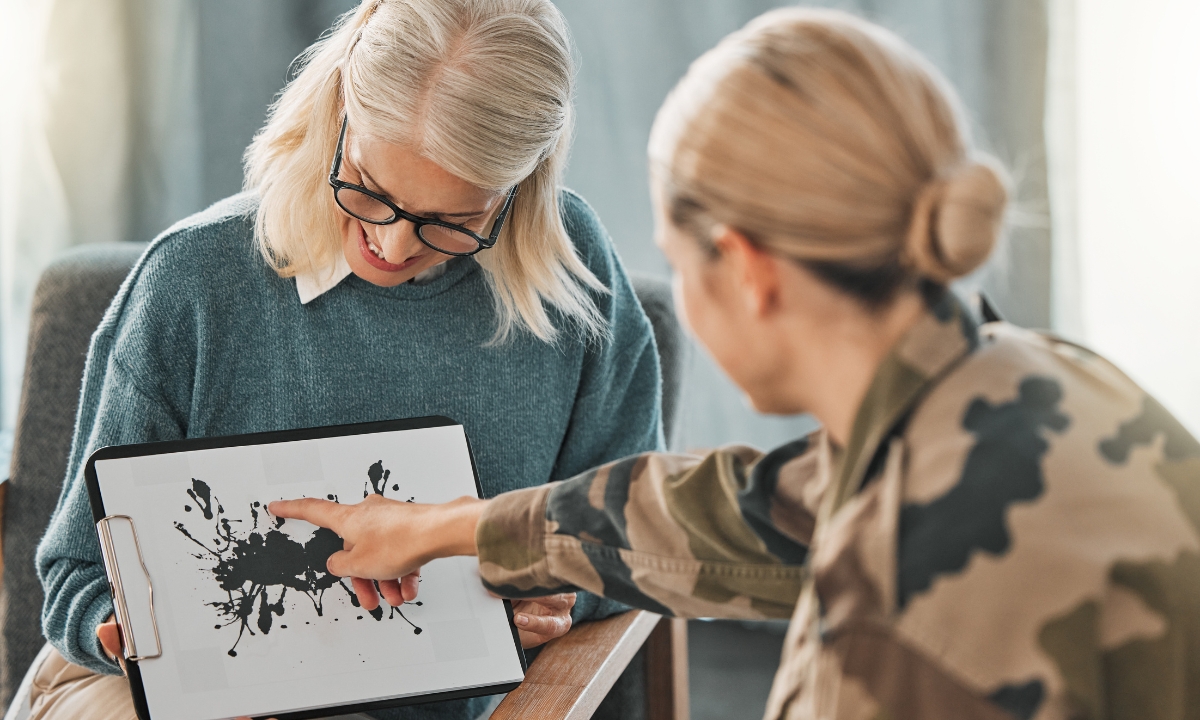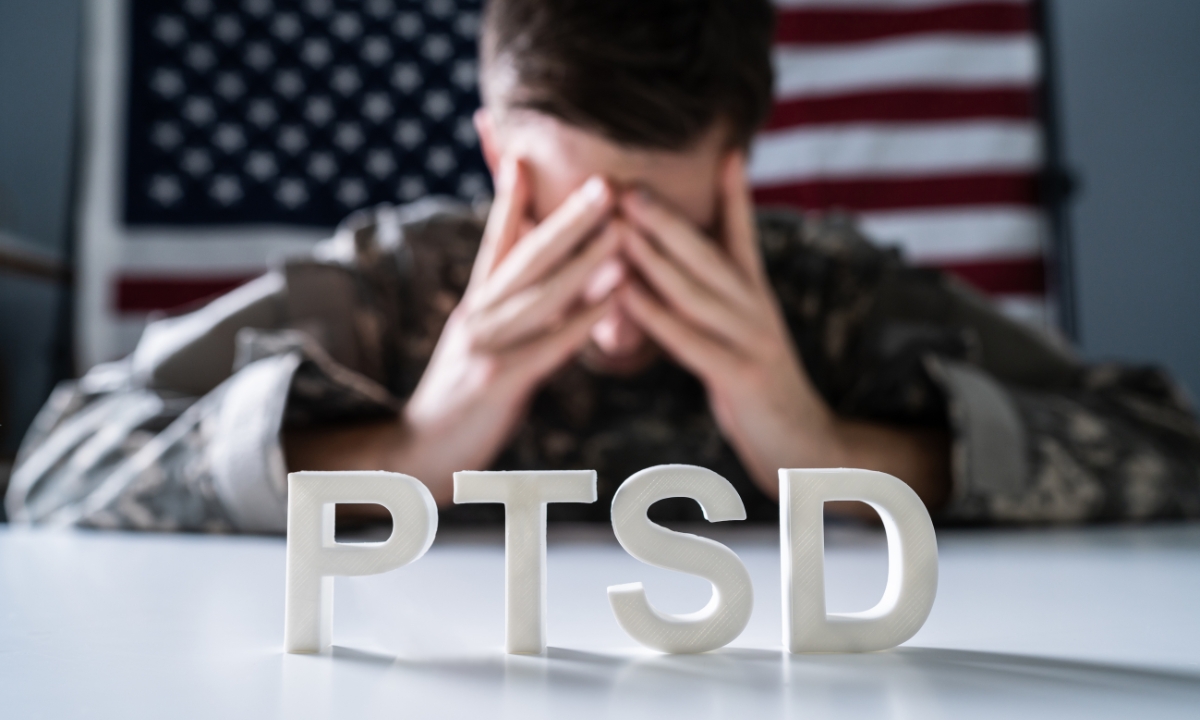Being a caregiver for anyone means facing various challenges, but those who care for veterans often face unique mental challenges related to posttraumatic stress disorder, more commonly known as PTSD. This condition is typically caused by experiencing one or more traumatic events. For veterans, PTSD is often caused by being in combat. Seeing their fellow soldiers and friends get wounded or even die is not something that’s easily shrugged off, even for those who do get the mental care they need.
Unfortunately, many veterans aren’t receiving the care necessary to help them process trauma and work through their PTSD. They may have anxiety attacks, flashbacks, or other symptoms that make it difficult for them to live their lives. If you’re a caregiver for someone with PTSD, you may not know how to help them through some of these symptoms. Reliant Home Care Services’ team understands PTSD and how it affects our veterans, so we can help you with these challenges. In addition to providing in-home care and respite care, we can also help you learn more about PTSD.

What is PTSD?
PTSD is a type of mental disorder that can affect anyone who has gone through trauma. It often affects veterans who saw combat, but it can also affect police officers, firefighters, emergency room doctors, and others who deal with life or death situations. Even those in other careers can develop PTSD if they’re assaulted, in a serious car wreck, abused as a child, or put through any other type of trauma. While we often work with veterans affected with PTSD, our family care services can help anyone who is dealing with PTSD to the extent that they’re in need of a caregiver.
Typically, PTSD symptoms fall into four different categories:
Intrusive memories
- Those with PTSD may have recurring, unwanted memories of traumatic events. Some may even relive these events, while others may have horrible nightmares. Often, the person has a strong physical reaction or emotional distress due to these memories.
Avoidance
- One way those with PTSD have of dealing with this disorder is by avoiding anything that can trigger emotional responses. They may stop going to specific places, avoid certain people, or even shut themselves away from the world.
Changes in Thoughts and Mood
- These changes, which are almost always negative, include viewing the world in a negative way, feeling hopeless or detached, losing interest in hobbies, feeling numb, and having suicidal thoughts. Veterans struggling with PTSD may let their relationships go, withdrawing from family and friends.
Changes to Emotional and Physical Reactions
- Individuals grappling with PTSD often experience a range of physical changes, including heightened startle responses, fatigue, and trouble sleeping, alongside emotional shifts such as intense anxiety, sadness, and feelings of detachment. These symptoms reflect the profound impact of trauma on the body and mind, underscoring the need for compassionate support and understanding.
These symptoms can vary from person to person. Some may only exhibit one or two of them, while others may struggle with all four. The intensity varies, too, and can change over time. While it’s possible that traumatic memories will fade over time, it’s also possible that they will get more intense.

Helping Veterans Who Have PTSD
What can you do to help a loved one who is struggling with PTSD? Here are a few things you can do to help someone who is dealing with this condition.
Be Patient
PTSD can affect memory, thought processes, emotional states, and more. Your loved one may not always be aware of how PTSD is affecting them, nor are they always able to simply stop reacting when told to. For example, someone having an anxiety attack due to being in a crowded space may not physically be able to move and will need help getting to a more secluded space. Be patient with your loved one.
Learn About the Disorder
Understanding what PTSD is should be the first step towards being an informed caregiver, but there’s more to it than simply reading some articles and talking to a mental health expert. PTSD manifests in different ways for different people. For some veterans, the sounds of fireworks may trigger memories of being in combat, but others may be fine with fireworks but have flashbacks if they hear a car backfire. You’ll need to pay close attention to what triggers your loved one so you can help them identify those triggers and create healthy coping strategies.
Take an Active Role in Your Loved One’s Health and Well-being
Many people who struggle with PTSD and other conditions can easily find themselves overwhelmed with information, appointments, and medications. If your loved one is agreeable, go to their doctor’s appointments with them so you can hear the same information and ask questions. Help them sort their medication in a way that makes sense to your loved one and make certain that they’re taking these medications as directed.
Encourage Your Loved One to Spend Time with Friends and Family
It can be easy for a veteran to sequester themselves from others, especially if they’re going through serious bouts of PTSD. However, being alone can make dealing with their trauma even worse and often leads to negative thoughts and actions. Encourage your loved one to remain in contact with friends and family, even if it’s just through texting or phone calls. If possible, visit regularly and try to take your loved one out to dinner or other activities that get them out of the house, even if it’s just for a short amount of time. Of course, you will want to be conscious of their PTSD triggers and plan activities that won’t cause anxiety.
Don’t Escalate Situations
Those who struggle with PTSD can become angry or even violent if they’re triggered. Remember, they’re not acting out on purpose—often, they’re reliving a terrible situation that has traumatized them. While it may be difficult, do your best to remain calm. Speak calmly, and don’t trivialize what they’re going through. If your loved one has become truly violent to the point that you fear they will physically harm you, leave and call for help.
Be an Advocate for Your Loved One
Veterans may not be willing to speak about some of the things they’ve seen, and that’s okay. However, if you have family members who aren’t willing to understand PTSD and continually push your loved one to share or intentionally attempt to trigger PTSD episodes, you need to step in. Be a voice for your loved one and let them know that such behavior is unacceptable. In some cases, talking about PTSD with these individuals and educating them can help them understand what your loved one needs. Unfortunately, in other cases, you may have to limit contact between your loved one and those who are sabotaging their recovery.
Reach Out for Help
Helping veterans with PTSD isn’t a solo effort. Help is out there. Your loved one’s healthcare providers are on your side and can be a great source of information. You may have other family or friends who can help by spending time with your loved one. There are support groups for families of veterans and for those who struggle with PTSD, including online forums and groups for those who can’t find a local support system.
Reliant is also here to help. We can assist you with finding the right resources for you. There are many forms of support for veterans and for those who suffer from PTSD, but it’s not always easy to find the right ones for your loved one. In addition to resources, we provide in-home care and respite care for those in Riverside County. Whether your loved one needs a little help getting dressed and preparing meals or you simply need someone to spend the afternoon with them while you handle your own things, we’re here for you.

Contact Reliant Today to Learn More About Caring for Veterans with PTSD
Caring for anyone involved sacrifice and dedication. Those who care for a veteran with PTSD may find themselves feeling especially challenged and overwhelmed. Reliant is here to take some of the stress off you. Whether you need us every day or are only looking for the occasional respite care, we can help. Reach out today to learn more.

